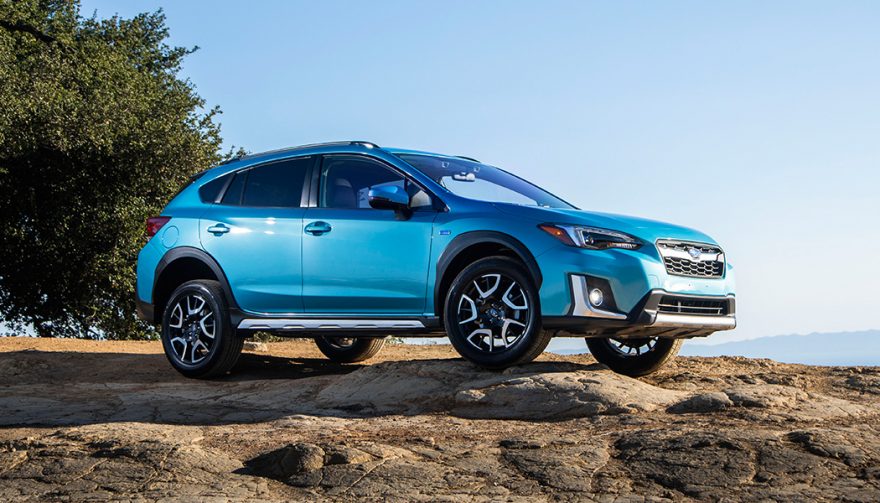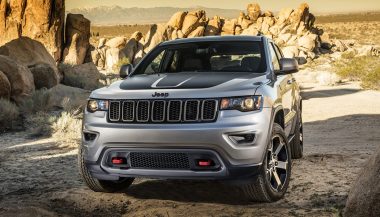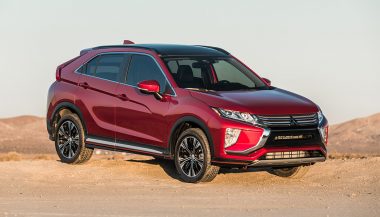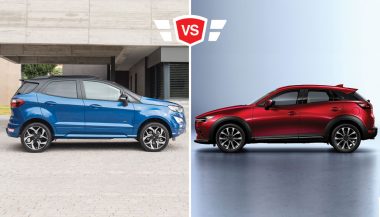
One of the best options for small families is the Crossover SUV. What is it, and why is it such a good fit for you? Let’s take a closer look.
The Modern Family Car: Should You Buy a Crossover SUV?
In the market for a new vehicle to fit the needs of your small family? You have plenty of options out there – you could opt for a mid-size sedan. Or you could choose a full-size truck or go with a minivan. You might even opt for a compact, or a luxury car, too. However, one of the best and most popular options for small families is the crossover or CUV. What is it, and why is it such a good fit for you? Crossover SUVs are clearly the vehicles Americans want so let’s take a closer look at if a Crossover SUV is right for you.
What’s a Crossover SUV?
Let’s tackle the “what is it” portion first. A crossover is sort of a mixture between different types of vehicles. A crossing over of the different characteristics, if you will. You’ll find that they blend characteristics of SUVs with those of a sedan in an attempt to deliver the best of both worlds. Does this succeed? Actually, it does in many instances, but not all of them.
There are quite a few different form factors that crossover vehicles can take on, as well. Some are closer to being SUVs, while others are just taller wagons. This is important for more than aesthetics, though. The taller the vehicle is, the higher its center of gravity and the more prone to flipping it is. The lower the center of gravity is, the more stable the vehicle will be in cornering, and the more closely the handling will resemble a car, rather than a conventional-style sport utility vehicle.
Still not sure what a crossover SUV really looks like? Here are some of the most popular models in this segment for the 2018 model year as ranked by Car and Driver:
- Nissan Rogue
- Volkswagen Tiguan
- Hyundai Tucson
- Ford Escape
- Jeep Cherokee (but not the Grand Cherokee, which is a full SUV)
- Mazda CX-5
- Kia Sportage
- Honda CR-V
- Toyota RAV4
- Chevrolet Equinox
- Mitsubishi Eclipse Cross
There are many others out there, as well. In fact, many of Subaru’s vehicles actually slot well into the compact crossover category, although they might look more like station wagons.
Why Are They Ideal for Small Families?
What makes crossover vehicles the right choice for smaller families? Actually, there are quite a few reasons you might find them appealing, including the following:
- Better Fuel Economy: While they might not be as efficient as a Prius, you’ll find that most crossovers get far better fuel economy than a full-size SUV. For example, the Honda CR-V gets somewhere around 29 MPG (combined), while the Ford Escape sees roughly 26 MPG combined.
- Ground Clearance: Most crossover SUVs have a higher stance than passenger cars, making them easier to get into and out of, but also offering higher ground clearance, which can be a real benefit even if you never take it off-road.
- More Capable: One of the hallmarks of the crossover is that it is more capable than the sedan portion of its DNA. You can take them off the pavement (at least a little) without too many worries. However, most of them aren’t designed for serious off-road use.
- Just Enough Space: One of the things that smaller families really appreciate about these vehicles is that they tend to hit the sweet spot where space is concerned. They have more room than sedans, meaning that you can haul more gear more easily. However, they have less space than a full-size, truck-based SUV, so there’s not as much wasted space here.
- Light Towing: No, you won’t be pulling a horse trailer or a large boat with your crossover, but most vehicles in this class have at least light towing capabilities. That means getting your camping gear to the woods, or your jet ski to the lake won’t be a hassle.
How to Choose a Crossover SUV
So, what qualities should you look for in a crossover for your family? There are a few key areas that everyone should pay attention to.
The first one you want to consider is probably space. How many people can the vehicle sit comfortably? Will your family be growing in the near future, meaning that you’ll need more room? How much cargo space is available in the back? Do the rear seats fold flat for additional storage? Remember that as your children grow, so will the amount of gear they have to haul, whether they’re going to school or the soccer field. Is a third-row seat available as an option, or are you limited to just two?
Another consideration here will most certainly be fuel economy. While crossovers get better gas mileage than full-size SUVs, they see less in general than sedans. Check the estimated MPG for each vehicle you’re considering and make sure it’s a good fit for your driving needs (and your wallet).
Price is definitely going to be a huge concern here, but you’ll find a wide diversity in terms of price range. Kia and Hyundai offer some of the most affordable vehicles on the market, while Porsche, BMW and Volkswagen will set you back considerably more. In the middle, you have brands like Ford, Honda, Toyota and the rest. Know how much you can afford, and buy accordingly.
Of course, you want to make sure that you’re buying a car that will last. Buying a budget crossover does you little good if you’re experiencing serious problems soon after (even warranty coverage isn’t going to offset the wasted time and stress).
Check the engine under the hood. Most will be 4-cylinders, but you’ll find a lot of diversity in terms of performance and horsepower available. Test drive several models to find one that offers the right amount of pep for your needs (most crossovers can’t be termed “powerful”, but some come close).
A crossover SUV might be the perfect option for your small family, particularly if you don’t plan on adding to it in the future. Combining a mixture of benefits and advantages, this segment is one of the fastest growing in the automotive industry, and there’s something for everyone.





